 Your new post is loading...
 Your new post is loading...
Alison Gopnik is the author of the New York Times best seller The Philosophical Baby, a regular contributor to The Wall Street Journal, and a pioneer in developmental psychology and understanding the way children learn. Gopnik’s new book, The Gardener and the Carpenter—which came out in August 2016—addresses the growing pressure on parents and teachers to ensure that children develop in one particular way.
That’s a losing strategy, insists Gopnik. Arguing passionately for a messier, less directed form of guidance for children, Gopnik summons evidence from decades of research that suggests that young kids are born learners—diverse, wildly unpredictable, easily distracted, but always processing information, cracking codes, and experimenting with new, innovative ideas that drive the species forward. Learn more / En savoir plus / Mehr erfahren: http://www.scoop.it/t/21st-century-learning-and-teaching/?tag=Creativity
Via Gust MEES
The Rigor Relevance Framework®
The Rigor/Relevance Framework is a tool developed by the International Center to examine curriculum, instruction, and assessment along the two dimensions of higher standards and student achievement. It can be used in the development of both instruction and assessment. In addition, teachers can use it to monitor their own progress in adding rigor and relevance to their instruction, and to select appropriate instructional strategies for differentiating instruction and facilitating higher achievement goals.
The Knowledge Taxonomy (y-axis) is a continuum based on the six levels of Bloom's Taxonomy, which describes the increasingly complex ways in which we think. The low end involves acquiring knowledge and being able to recall or locate that knowledge. The high end labels the more complex ways in which individuals use knowledge, such as taking several pieces of knowledge and combining them in both logical and creative ways. Learn more / En savoir plus / Mehr erfahren: http://www.scoop.it/t/21st-century-learning-and-teaching/?tag=Rigor
Via Gust MEES
Allison Tallman October 3rd, 2016
In my recent post on teacher training programs, I discussed what I believe to be the characteristics of a high-quality teacher training program—qualities that helped me to best prepare for my first day of school. However, learning doesn’t stop there! With the continuous, nonstop changes in education, teachers are constantly learning new strategies, ideas, and research throughout their career.
Sometimes we are sent out for Professional Development (PD) workshops, while other times we attend required school-based or online sessions. In addition to PD workshops and sessions, teachers may choose to formally continue their education by receiving master’s degrees or a PhD, or by taking individual courses to receive credit.
What if the PD you are receiving doesn’t necessarily meet your needs and professional goals? What if attending graduate school isn’t the best option for you? What if you just don’t have the time to take classes? I believe that it is our job as teachers to be accountable for our own learning by seeking out the information we want to know. This is precisely why back-to-school is the perfect opportunity to think about your professional goals. I appreciate and understand that our time as teachers is valuable, so I present to you my favorite quick and efficient tips to “learn more,” without stepping into a classroom, workshop, or meeting. Learn more / En savoir plus / Mehr erfahren: https://gustmees.wordpress.com/2015/03/15/professional-development-why-educators-and-teachers-cant-catch-up-that-quickly-and-how-to-change-it/ https://gustmees.wordpress.com/2013/01/23/is-your-professional-development-up-to-date/ https://gustmees.wordpress.com/2015/03/28/learning-to-learn-for-my-professional-development-i-did-it-my-way/
Via Gust MEES
"Inquiry happens when you focus on the art of teaching." Kath Murdoch. After the session, I attempt to categorise the teachers’ ideas under conceptual headings. The more I think about their statements, the more my categories overlap. I consider first Kath’s shared list of inquiry practices and then Ron Ritchhart’s cultural forces. In the end it comes down to a handful of big ideas, for me… Language: Use a language of learning not compliance. Choose language that supports learners in describing and reflecting on their thinking and learning.
Process: Focus as much on the process of learning as the content. Use split screen teaching. Notice and name how we are learning, not just what we are leaning. Release: Let go of your expectations and allow students to lead. Ensure the learners do the heavy lifting. Release responsibility as early as possible, then observe where to take the learning next. Teacher as learner: Position yourself as part of the learning community, not as the expert in the room, both physically and through your interactions. Make your own thinking process visible. Time: Do less, but do it more deeply. Devote time to developing learning dispositions. Give children time to reflect on how and why they change their ideas or thinking. Learn more / En savoir plus / Mehr erfahren: https://gustmees.wordpress.com/2016/03/14/time-the-most-important-factor-neglected-in-education/
Via Dean J. Fusto, Mark E. Deschaine, PhD, Gust MEES
Teaching students good learning strategies would ensure that they know how to acquire new knowledge, which leads to improved learning outcomes, writes lead author Helen Askell-Williams of Flinders University in Adelaide, Australia. And studies bear this out. Askell-Williams cites as one example a recent finding by PISA, the Programme for International Student Assessment, which administers academic proficiency tests to students around the globe, and place American students in the mediocre middle. “Students who use appropriate strategies to understand and remember what they read, such as underlining important parts of the texts or discussing what they read with other people, perform at least 73 points higher in the PISA assessment—that is, one full proficiency level or nearly two full school years—than students who use these strategies the least,” the PISA report reads. Learn more / En savoir plus / Mehr erfahren: https://gustmees.wordpress.com/2014/10/03/design-the-learning-of-your-learners-students-ideas/ https://gustmees.wordpress.com/2015/07/19/learning-path-for-professional-21st-century-learning-by-ict-practice/
Via Gust MEES
Coaching in Modern EDUcation, the benefits . Learners, students learn BETTER when their brain is free, without any framing, thus meaning: include them into the learning process by guiding them through the <===> LEARNing Process <===> instead of teaching ONLY linear lessons WHERE YOU are the BOSS, give up control and look for… Learn more / En savoir plus / Mehr erfahren: http://www.scoop.it/t/21st-century-learning-and-teaching/?tag=Coaching
Via Gust MEES
“CHANGE” is the rule of nature. As technology is changing frequently and if you want to walk with the world you need to be creative and innovative as well. Nobody can make sure that the world is going to be same five years later because everything is changing with the blink of an eye. So, it is very important for all of us to know to keep ourselves updated. Creativity is related to ‘imagination’ but innovation is related to ‘implementation’. Here we have discussed all the significant differences between creativity and innovation, have a look. Learn more: http://www.scoop.it/t/21st-century-learning-and-teaching?tag=Creativity https://gustmees.wordpress.com/?s=creativity
Via Gust MEES
This easy-to-use Microsoft Word rubric template -- created by Cait Camarata, Edutopia's visual designer -- can be modified to suit your own needs. It is also available in Google Docs format. Read about some of the elements of well-designed rubrics in the associated post: "4 Easy Tips and Tricks for Creating Visually Engaging Rubrics." Learn more: http://www.scoop.it/t/21st-century-learning-and-teaching/?tag=rubric
Via Gust MEES
The illiterate of the 21st century will not be those who cannot read and write, but those who cannot learn, unlearn and relearn.
Via Gust MEES
"Measure the wrong things and you'll get the wrong behaviors." This simple statement succinctly characterizes why the American education system continues beating its head against the wall. Throughout education, an increasingly rigid, closed loop of assessment is systematically making schools worse: Define things children should know or be able to do at a certain age; design a curriculum to instruct them in what you've decided they should know; set benchmarks; develop tests to see if they have learned what you initially defined; rinse and repeat. This narrow, mechanistic approach to education does not correspond to the reality of child development and brain science, but the metrics and assessment train charges down the track nevertheless. So what's wrong with that, you might ask? Isn't school about teaching kids stuff and then testing them to see what they've learned? In a word, "No." It simply doesn't work, especially with young children. As Boston College Professor Peter Gray wrote in a recent Psychology Today article: Perhaps more tragic than the lack of long-term academic advantage of early academic instruction is evidence that such instruction can produce long-term harm, especially in the realms of social and emotional development. "Direct instruction" does increase scores on the tests the instruction is aimed toward, even with very young children. This self-fulfilling prophecy is not surprising. But multiple studies also show that the gains in performance are fleeting -- they completely wash out after 1-3 years when compared to children who had no such early direct instruction.
Via Mark E. Deschaine, PhD, Gust MEES
We can be tactical in our schooling. The traditional advice on learning has been to “study hard,” in a quiet place and with the same routine, yet that doesn’t say much about what to specifically do. But pupils today can change the way they study to exploit the brain’s quirky learning processes, using the strategies revealed by memory and learning research. While that science is still maturing, “it’s at a place now where it can give you a specific tactical plan,” Carey said. . Students can tailor their preparation with techniques targeting different kinds of content or skills, and manage their schedule to optimize their time. “That’s a powerful thing, because we go through our whole lives never knowing that,” he said. . Ultimately, the value of these learning strategies isn’t just about earning better grades, Carey said. In the modern jungle of society, learning is still about surviving: For young people, it’s about sussing out what they’re good at, what rings their bell, and what they want to do with their lives. “It’s informing you of: Who am I? Where do I place my bets? Do I major in physics or do I major in architecture or design, or do I major in English? Do I belong here at all?” Carey said. Those are important decisions. “Being self-aware about what’s effective learning and how it happens, I think, gives you a real edge in making those choices.” Learn more: - https://gustmees.wordpress.com/2013/04/25/learn-every-day-a-bit-with-curation/ - https://gustmees.wordpress.com/2015/03/28/learning-to-learn-for-my-professional-development-i-did-it-my-way/
Via Gust MEES
|
Brain, Learning, and Teaching Infographic
I hope you find the Brain Hacking infographic above useful. You can access the other Brain-Based Learning infographics I created by scrolling down my ED!Blog. Please share it with other educators, parents, and learners. I will feature additional Brain-Based Learning Infographics in my future NEWSLETTERS, so please SIGN UP if you would like to receive more tips and strategies that work in helping students become better learners.
If you find the information in the infographic useful, consider buying "Crush School: Every Student's Guide To Killing It In The Classroom", which is a book I wrote to help students learn more efficiently and effectively using proven research based strategies.
And Remember: You Have the Power to Change the World. Use it often.
Learn more / En savoir plus / Mehr erfahren: http://www.scoop.it/t/21st-century-learning-and-teaching/?tag=Brain
Via Gust MEES
Progressive education | John DEWEY
Progressive education is a pedagogical movement that began in the late nineteenth century; it has persisted in various forms to the present. The term progressive was engaged to distinguish this education from the traditional Euro-American curricula of the 19th century, which was rooted in classical preparation for the university and strongly differentiated by social class. By contrast, progressive education finds its roots in present experience. Most progressive education programs have these qualities in common:[citation needed] Emphasis on learning by doing – hands-on projects, expeditionary learning, experiential learningIntegrated curriculum focused on thematic unitsIntegration of entrepreneurship into educationStrong emphasis on problem solving and critical thinkingGroup work and development of social skillsUnderstanding and action as the goals of learning as opposed to rote knowledgeCollaborative and cooperative learning projectsEducation for social responsibility and democracyHighly personalized learning accounting for each individual's personal goalsIntegration of community service and service learning projects into the daily curriculumSelection of subject content by looking forward to ask what skills will be needed in future societyDe-emphasis on textbooks in favor of varied learning resourcesEmphasis on lifelong learning and social skillsAssessment by evaluation of child's projects and productions Link from Wikipedia: https://en.wikipedia.org/wiki/Progressive_education#John_Dewey
Via Gust MEES
Critical Thinking
As an organization, critical thinking is at the core of what we do, from essays and lists to models and teacher training. (You can check out What It Means To Think Critically for a wordier survey of the intent of critical thinking.)
For this post, we’ve gathered various critical thinking resources. As you’ll notice, conversation is a fundamental part of critical thinking, if for no other reason than the ability to identify a line of reasoning, analyze, evaluate, and respond to it accurately and thoughtfully is among the most common opportunities for critical thinking for students in every day life. Who is saying what? What’s valid and what’s not? How should I respond?
This collection includes resources for teaching critical thinking, from books and videos to graphics and models, rubrics and taxonomies to presentations and debate communities. Take a look, and let us know in the comments which you found the most–or least–useful. Learn more / En savoir plus / Mehr erfahren: http://www.scoop.it/t/21st-century-learning-and-teaching?tag=Critical-Thinking
Via Gust MEES
Stop avoiding what scares you. You need to speak in public, but your knees buckle even before you reach the podium. You want to expand your network, but you’d rather swallow nails than make small talk with strangers. Speaking up in meetings would further your reputation at work, but you’re afraid of saying the wrong thing. Situations like these — ones that are important professionally, but personally terrifying — are, unfortunately, ubiquitous. An easy response to these situations is avoidance. Who wants to feel anxious when you don’t have to? But the problem, of course, is that these tasks aren’t just unpleasant; they’re also necessary. As we grow and learn in our jobs and in our careers, we’re constantly faced with situations where we need to adapt our behavior. It’s simply a reality of the world we work in today. And without the skill and courage to take the leap, we can miss out on important opportunities for advancement. How can we as professionals stop building our lives around avoiding these unpleasant, but professionally beneficial, tasks? Learn more / En savoir plus / Mehr erfahren: http://www.scoop.it/t/21st-century-learning-and-teaching/?tag=Growth+Mindset http://www.scoop.it/t/21st-century-learning-and-teaching/?tag=Comfort+Zone http://www.scoop.it/t/21st-century-learning-and-teaching/?tag=Character
Via Ariana Amorim, Kevin Watson, Mark E. Deschaine, PhD, Gust MEES
At some point in our lives, we’ve all practiced some counterproductive learning habits. We’ve sabotaged ourselves without realizing it, and found ourselves stuck. There have been failures we believe have defined our potential. We’ve obsessed over perfect solutions and singular pathways. In frustrated moments we’ve refused help from others, thinking acceptance means weakness. We’ve done this as teachers, students, friends, and parents.
These are not crimes; they’re part of what makes us human. Our counterproductive learning habits usually come from what we observe and hear. We pick things up as children from well-intentioned adults in our lives. In addition, the experiences of others constantly unfold right in front of us. We observe actively, and we remember.
Eventually we come to believe that what we see is how things are, and that it never changes. We know now that this doesn’t have to be the case. We know now that we can create our own experiences. Let’s make them good ones when it comes to learning.
Leartn more / En savoir plus / Mehr erfahren: https://gustmees.wordpress.com/2015/07/19/learning-path-for-professional-21st-century-learning-by-ict-practice/
Via Gust MEES
Time THE MOST Important Factor Neglected In EDUcation! WHY do I mention the word "Time"!? EVER thought about on How-To people learn!? Some are learning very quickly and others need MORE time as OTHERS to understand! BUT THEY ALL have to follow THE same scheme and rhythm in EDUcation, sounds strange isn't it…
Via Gust MEES
This piece was actually sparked by an interview of Lady Gaga by Soledad O' Brien at the Born This Way Emotion Revolution Summit where Gaga stated, "It's time to stop telling learners what to do and start listening for we can do for them.” One of those accepted practices, sadly, in most educational settings is that the teacher is the authority to be respected and listened to without question. Listening to students is not a practice that is often taught in teacher education programs. There is a current movement, in some circles, to promote and honor student voice. But, and this is a huge but, if educators are serious about honoring student voice, they need to first learn how to listen, really listen to their students. Students who are given a voice in setting goals gain ownership in what they’re learning. Teachers who listen to what students tell them they need to learn gain more than just a better understanding of the children they teach — they gain clarity on their roadmap to better teaching. And when conversations about teaching and learning are allowed to happen, teachers and students develop mutual trust and high expectations. (Want to Improve Teaching? Listen to Students) Learn more: https://gustmees.wordpress.com/2014/10/03/design-the-learning-of-your-learners-students-ideas/ https://gustmees.wordpress.com/2014/05/29/practice-put-students-in-the-drivers-seat-how-to/ https://gustmees.wordpress.com/2014/01/04/practice-better-ways-to-say-i-dont-know-in-the-classroom/
Via Gust MEES
Collaboratively devise a plan for meeting school responsibilities: Though I attend every meeting of my PLC, I do not attend faculty meetings. My principal and I set this expectation at the start of the year. Homeroom meets sporadically in the afternoons, so we arranged for a colleague to meet with my students. Principals and hybrid teachers must know what to expect of one another when it comes to responsibilities like serving on the school’s council or on committees. Can one hybrid teacher’s numerous leadership responsibilities at school become new opportunities for other teachers? Clarify and celebrate how a teacherpreneur’s work outside of the classroom benefits students: Most of my colleagues at school have little idea what keeps me busy in the afternoon. If they knew the value of this work, it would likely quell any frustration they experience when they have duties I do not, or temper any jealousy they may feel about my class schedule and “free time.” Teachers tend toward humility. We must support hybrid teachers by publicly celebrating their work. Offer hybrid teachers a chance to present their work to school and district leaders and include references in publications and regular communications, too. Find an advocate, mentor and network: Teachers often struggle to advocate for what they need, and expert classroom practitioners may be new to leadership. Designate someone to support teachers in hybrid roles — a person who can advocate for them, coordinate regularly with principals, provide coaching and even watch them teach. Encourage mentorship and participation in a network of other hybrid teachers who face similar challenges and can offer support and advice. In his book, The Great Influenza, John M. Barry reminds us that scientific discoveries happen on the frontier of our knowledge in a frightening yet necessary confluence of certainty and doubt. Just as scientists battled through urgency and uncertainty to invent the flu vaccine and halt a pandemic, we can only transform education to successfully meet the needs of our students by exhibiting this same kind of courage. Teacher leadership is our frontier, and teacherpreneurs are uniquely suited to discover its riches.
Learn more:
- http://www.scoop.it/t/21st-century-learning-and-teaching/?tag=Teacherpreneur
- https://gustmees.wordpress.com
- https://gustmees.wordpress.com
- https://gustmees.files.wordpress.com/2015/05/document_fusionne.pdf
- https://gustmees.wordpress.com/2015/05/26/what-are-the-skills-needed-from-students-in-the-future/
- https://gustmees.wordpress.com/2015/03/04/learning-to-learn-preparation-for-better-learning-how-to/
Via Gust MEES
|



 Your new post is loading...
Your new post is loading...



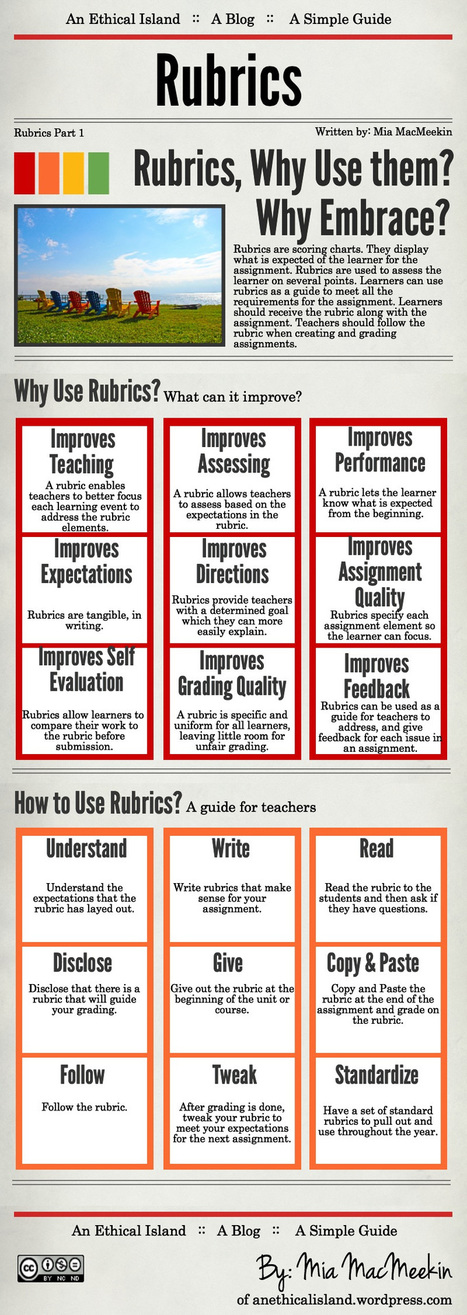

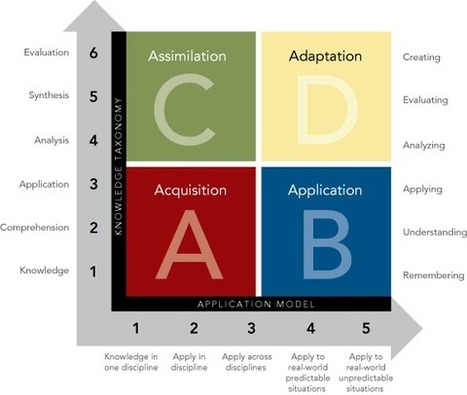
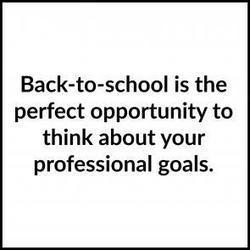














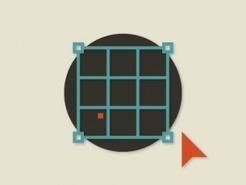


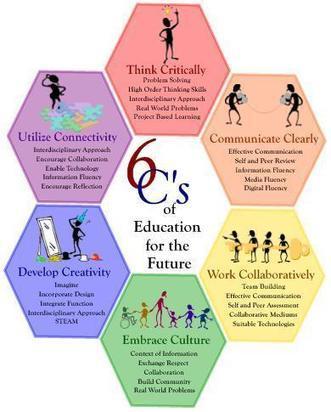



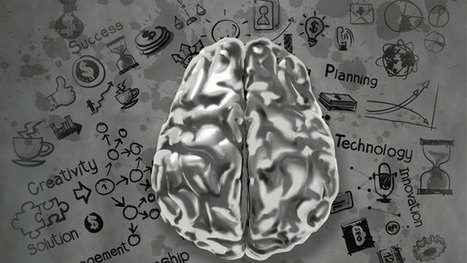




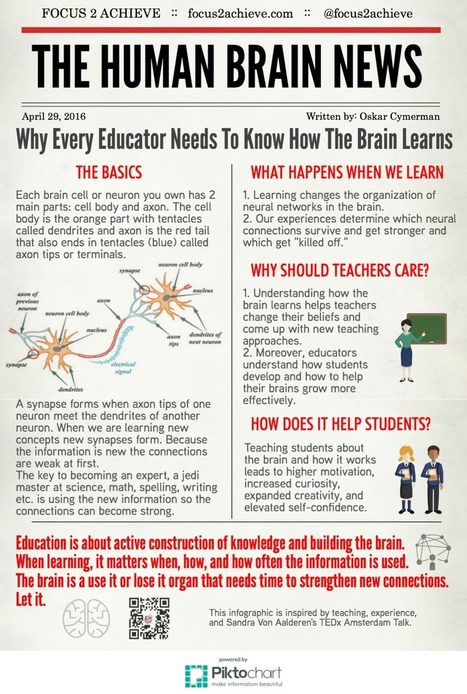



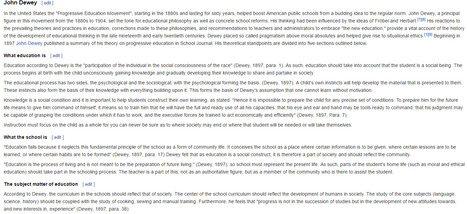
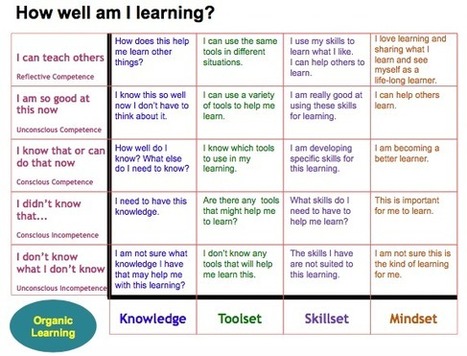



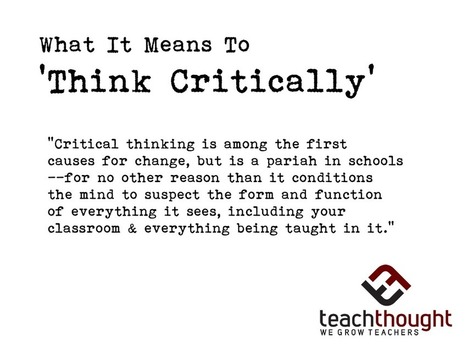







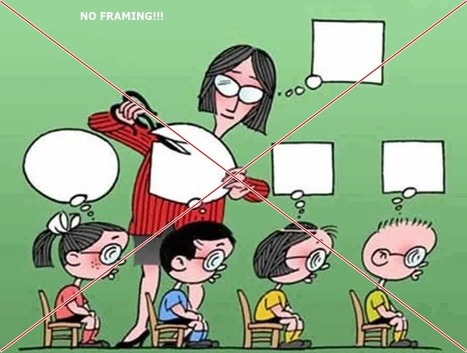

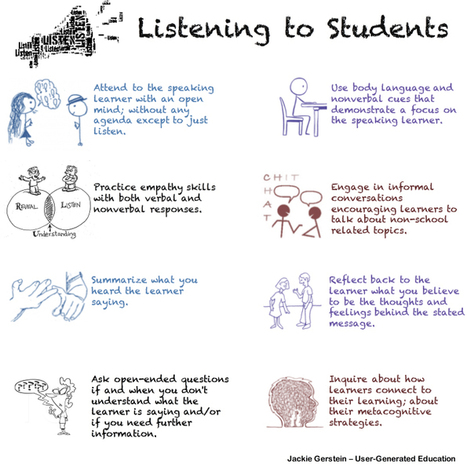














Learn more / En savoir plus / Mehr erfahren:
http://www.scoop.it/t/21st-century-learning-and-teaching/?tag=Creativity